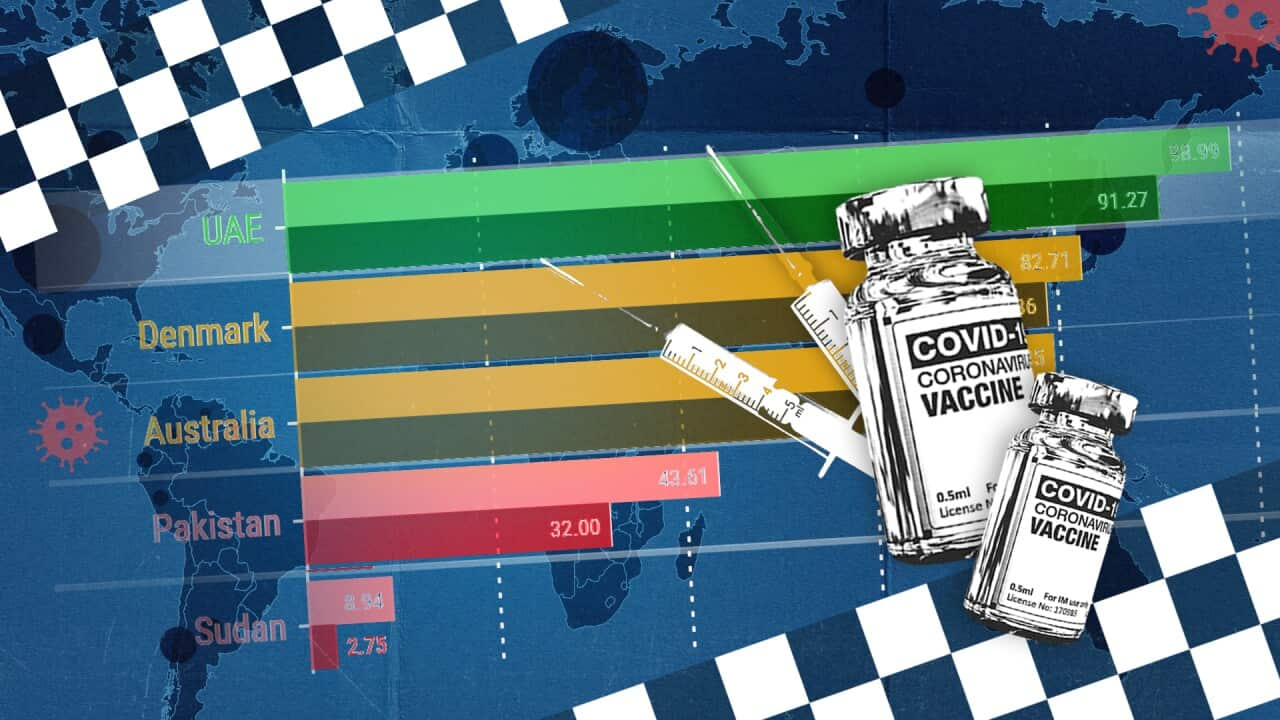Australia has been urged to donate more COVID-19 vaccines to developing countries, with a new report warning more than 20 low-income countries will not reach 70 per cent vaccination until after 2030.
The findings from campaign group End COVID For All warn the Australian government must not “close its eyes” to the impacts of the COVID-19 pandemic overseas, with fears "dangerous" mutations of the virus could appear in developing countries within the next year.
It is urging Australia to pledge an additional $250 million to secure COVID-19 vaccines for low-income countries through the global COVAX Facility vaccine sharing initiative, and donate another 20 million doses.
End COVID For All spokesperson Reverend Tim Costello said the longer the vaccination rates in developing countries were allowed to lag behind, the higher the global health risk.
“The Delta strain, and the havoc it has wreaked across Australia, shows we cannot allow COVID to run rampant and mutate overseas,” he said.
“We cannot ignore the moral imperative we have to help our poorest neighbours.”
The End COVID For All’s report , is backed by a coalition of aid, health and civil society groups.
Less than 4 per cent of people in low-income countries have received the first dose of a COVID-19 vaccine, according to the World Health Organisation.
There are also fears that the COVAX Facility is on track to fall almost 1 billion short of its updated vaccine target of 1.4 billion doses this year.
The report says that two-thirds of 77 epidemiologists surveyed in 28 developing countries believe if action is not taken now, it will take less than a year before the virus mutates.
It also warns of the economic impact of distribution inequity, saying Australia stands to lose between $7.6 billion and $33.7 billion of GDP through an “unnecessary prolonging of the pandemic”.
Minister for International Development and the Pacific Zed Seselja said in a statement that Australia is “absolutely committed to equitable access to COVID vaccines, including for developing countries".
“Australia has committed more than $750 million to support vaccine access initiatives to date,” he said.
“Australia has proudly committed to sharing 60 million vaccines with our neighbours in the Indo-Pacific by the end of 2022 and we have shared over 3.57 million vaccines directly with our region to date.” The report suggests the Australian government must build on this role to become a “vaccine factory for the region” to respond to outbreaks across the Indo-Pacific.
The report suggests the Australian government must build on this role to become a “vaccine factory for the region” to respond to outbreaks across the Indo-Pacific.

Minister for International Development Zed Seselja. Source: AAP
It also calls on the government to commit $50 million towards addressing vaccine hesitancy across southeast Asia through “strengthened partnerships with trusted community-led organisations.”
The World Health Organisation’s plan to address global COVID-19 vaccine inequality aims to vaccinate 70 per cent of the globe’s population by mid-2022.
The widespread distribution and administration of vaccines is considered a crucial target towards limiting the disease burden and economic impacts of the coronavirus pandemic.
But the distribution of vaccines has continued to be plagued by inequities between high-income and low-income countries.
United Nations Secretary-General Antonio Guterres has previously described the inequitable distribution as an describing the world's response as a "moral indictment."
Australia has also pledged $100 million through an agreement with the Quad alliance of the United States, India and Japan to increase production by at least one billion vaccines.





